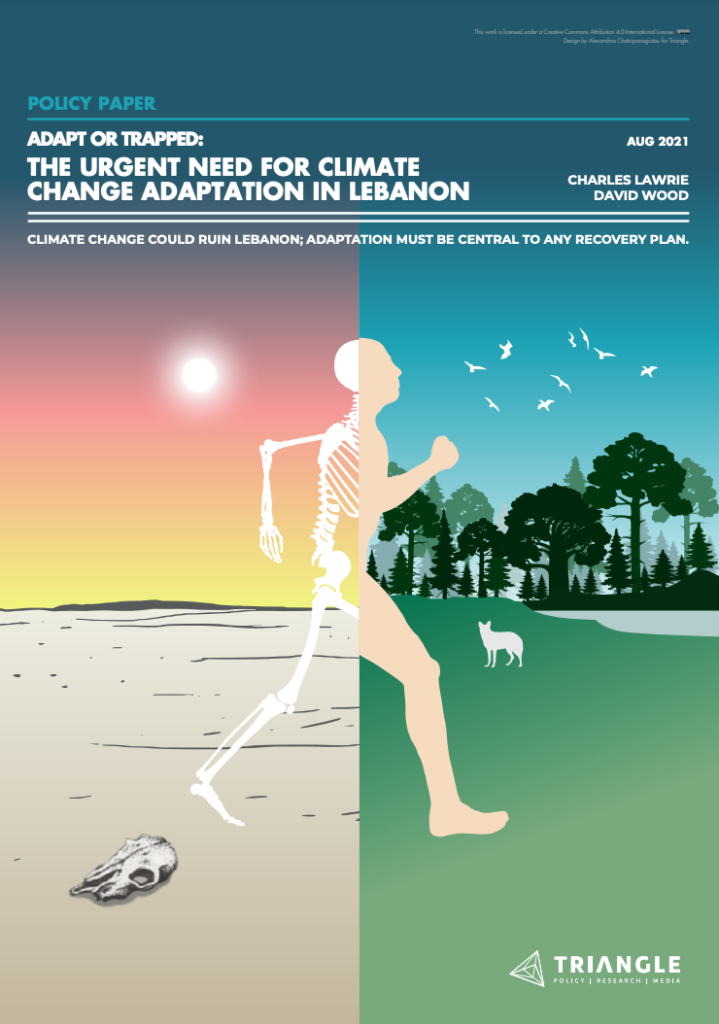As climate change bears down on nations and economies the world over, Lebanon is not adapting to the new reality. In October 2019, the Lebanese government had no answer to devastating forest fires in the Chouf region, which flourished in abnormally hot and dry weather conditions. Other climate change impacts are more subtle, but equally alarming—from the growing aridity of farms in Nabatieh and Bekaa to declining snowfall on Kfardebian’s mountain peaks.
These developments will spark more economic disaster for Lebanon if the country maintains its current, “business as usual” attitude. Already, vital sectors of the Lebanese economy face bleak futures, right when the country needs their productivity more than ever. Farmers suffer from diminishing crop yields and fishermen no longer haul in reliable catches. Lebanon is losing its lustre as a tourist destination, with disappearing wildlife and snow cover. All the while, national water reserves are evaporating at an alarming rate, driving up the cost of drinking and agricultural water.
